The gun world lost a good man in December.
I was saddened when I heard that friend Richard L. “Dick” Baker passed away following a sudden cardiac event.
Most of you have never heard of Dick Baker, but I can guarantee that all of you know his work. Dick had a long and successful career in the firearms industry, working for a host of companies and playing a key role in the perfection and development of many popular designs.
Quite a run!
Dick began his career as a draftsman in the Research & Development department at High Standard, in January of 1964. While there, he worked on the Model 10A shotgun and the highly-successful M106 and M107 .22 LR autopistols, which ruled the smallbore pistol games of the era. He also worked on a .38 caliber revolver design, and a .38 caliber Derringer design.
After a three-year stint at High Standard, he went to Colt Industries, where, as a Design Engineer for six years, he designed the MK III revolver, and worked on the Series 70 1911 pistol, and Single Action Army, among other projects.
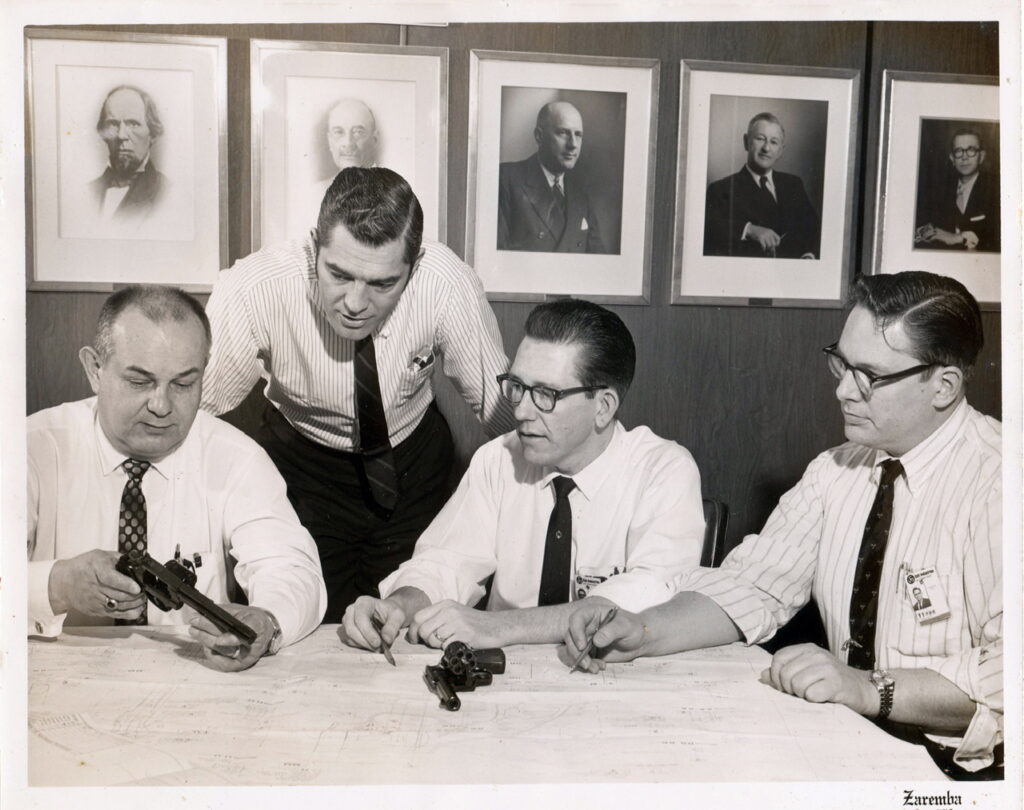
Dick went back to High Standard to work on the Crusader .357 Magnum and .44 Magnum revolvers, as well as the ever-popular Sentinel Mk III .22 caliber revolver. Following that, he had a short stay at Ruger (where he worked on a 5.56mm military rifle design) before he landed at Smith & Wesson, starting as a Senior Product Engineer, and eventually retiring as the Director of Product Engineering.
Dick’s biggest accomplishment at Smith & Wesson was to design the celebrated L-Frame revolver that we all know and love. When the K-Frame Magnums ran into durability issues, it was Dick who engineered the successor which remains one of Smith & Wesson’s most popular designs to date, and a special favorite for both Justin and me.
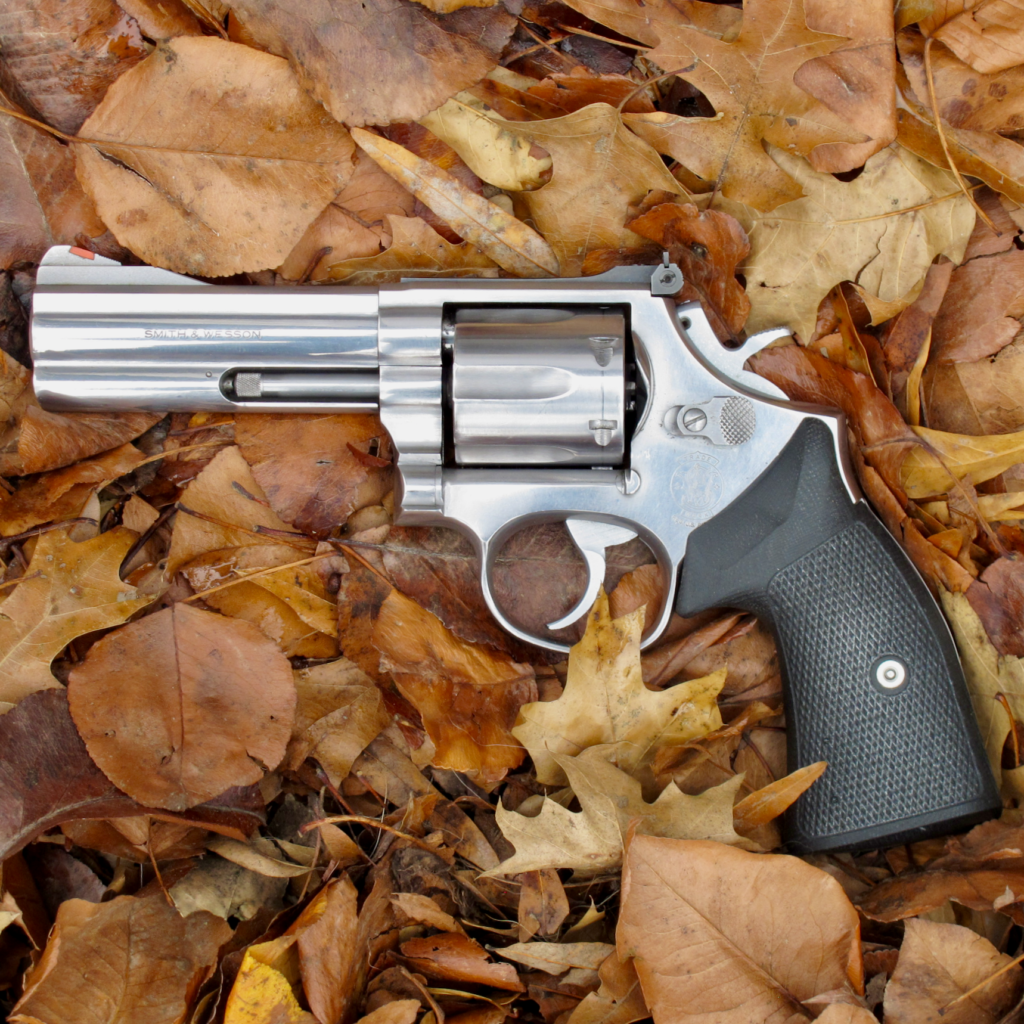
Even after retirement from Smith & Wesson, Dick kept busy as an independent consultant, working on military (M4, M16 and M249) and commercial (FNP-9 pistol) arms for Fabrique Nationale, and the .44 Magnum “Big Boy” lever action rifle for Henry Repeating Arms.
Friends
Although I’d never met Dick in person, I had the good fortune to talk to him by phone and email regularly, particularly when we worked together on a story that chronicled his early efforts at developing the first .40 caliber autopistol cartridge for Smith & Wesson. That story was published in American Handgunner last Fall, just months before Dick passed, and I’m grateful that he got to see it in print, because I know it meant a lot to him to have his previously-unrecognized efforts gain the attention they were due. He was equally proud to see his fellow coworkers on the .40 project get their moment in the spotlight, too—Dick was a team player, through and through.
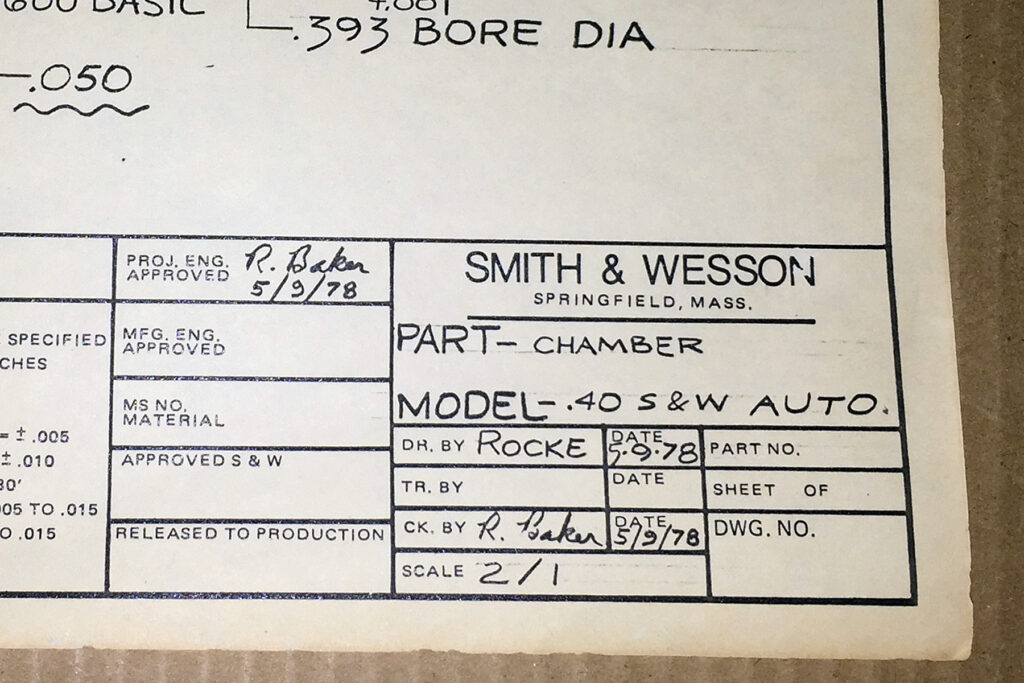
I was working with Dick on a story about the birth of the L-Frame when he passed, and I’m grateful that I kept good notes from my conversations with him. RevolverGuy readers will see that story published sometime in 2020, and while I’m sure it won’t be as strong without Dick’s careful review and assistance, I’m sure it will tickle him to see his name in print once again.
definitely a loss
Dick was sharp all the way to the end, and a keen observer of the industry. He would frequently comment about current designs and industry projects, speaking with a voice of hard-earned experience. He could recognize a good idea quickly, and a bad idea even faster, and was always ready to provide a detailed explanation of the engineering difficulties that had to be overcome. The biggest challenge with talking to Dick on the phone was to keep up with your notetaking, because he moved fast and everything he said was important.
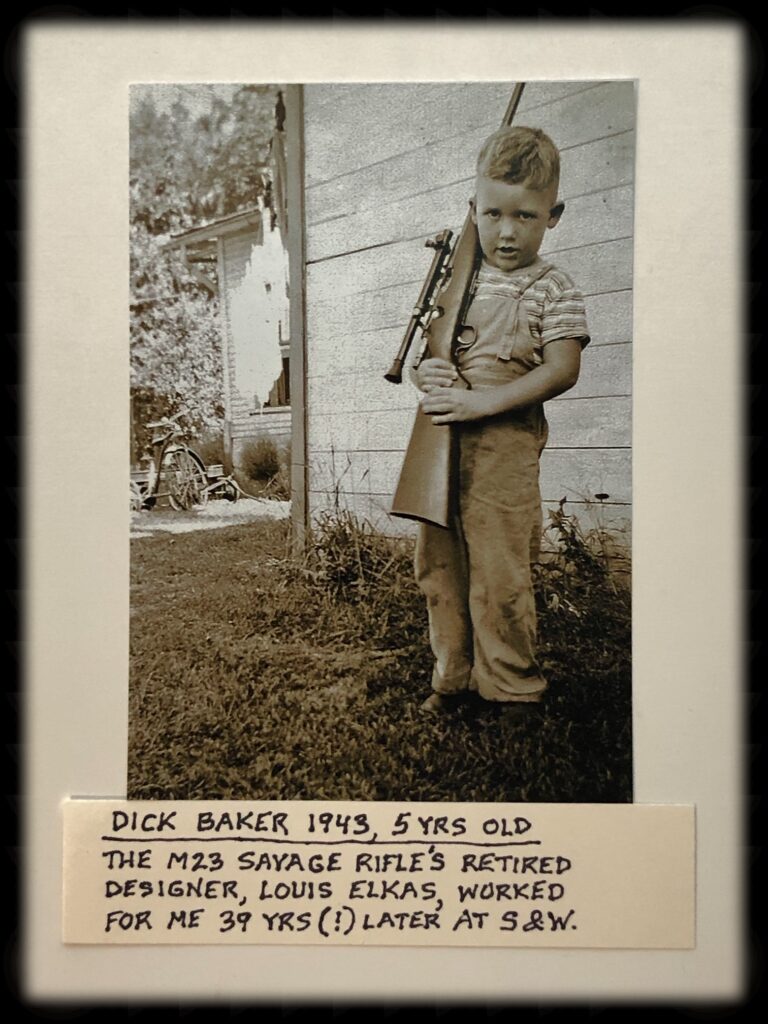
Dick was one of us, a RevolverGuy, and we will be poorer for his absence. Fortunately, his genius lives on in classic designs like the S&W 686, which bears tribute to his skill and talent.
Dick may be gone from this world now, but I like to think that every time I pick up an L-Frame, I’m shaking hands with him, and he’s smiling on the other side.
Rest in Peace, Dick, and thanks for all the great work down here. I look forward to seeing you at the big campfire in the sky, someday.

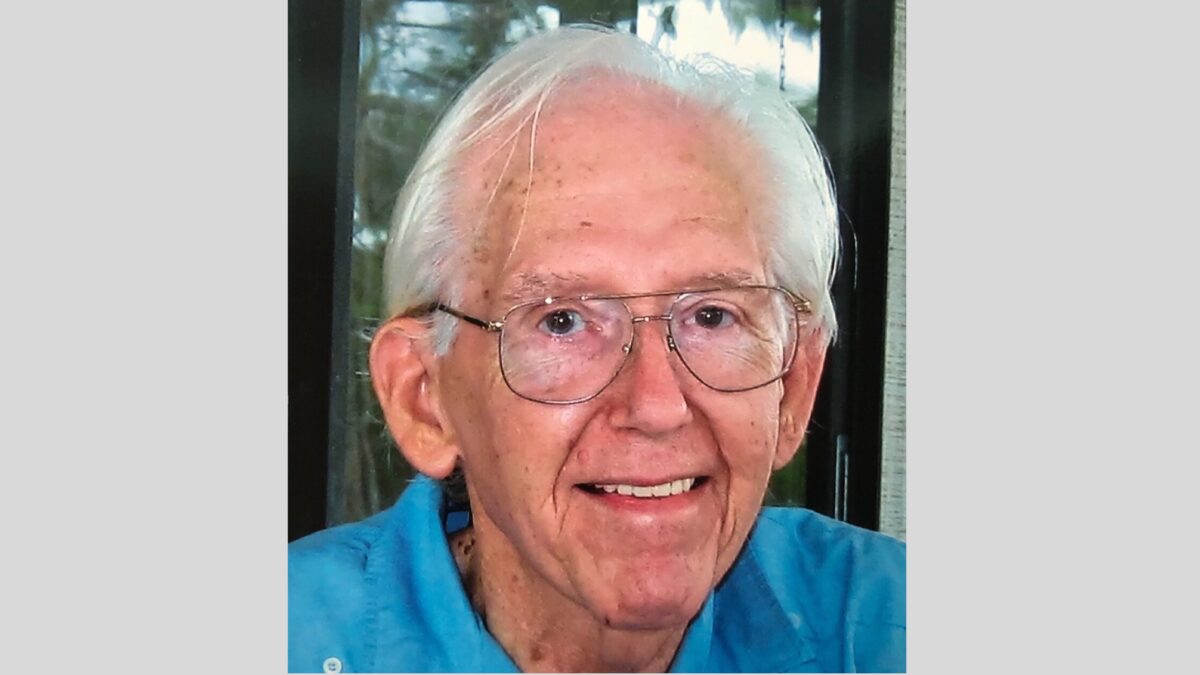
I worked at Colt’s from 1974 to 1976 in the International Sales Department under Jack Fiedler and Rob Roy. It was a rich experience. I did not know Mr. Baker, but he seems typical of the fine people I worked with at Colt’s. Hank Into and George Curtis, both remarkable engineers, were also in the line up at that time. George designed the CMG-2 and Hank had his hands in damned near everything good that Colt’s put out in those days. Sadly so much of the engineers’ time was taken up helping to defend against ambulance chasers with their frivolous lawsuits. V/R McKim
Thanks Mike, for recognizing Mr. Baker and his passing. I’m glad you got to spend some time with him before he left us. We are all better for his vision, talents and works. Here’s to him and those like him- precious few left. Hoping for a meaningful 2020 for RevolverGuys still on this side.
The Colt Mk III Trooper is one of the strongest and best ‘duty’ revolvers that Colt ever built. So, too, was S&W’s L-Frame revolvers. Between the S&W L-Frame and Ruger’s GP frame guns, there is little else anyone needs.
Yes, Dick was a talented designer! He did great work!
This is an awesome reminder of the fact that people can have a significant impact without being well known. Just because you aren’t famous doesn’t mean you aren’t important. Also, I think it is kind of cool that you posted an article about a Colt’s engineer on the same day that Colt’s revealed the Python 2020 on their website.
So many great people behind the scenes that we never know. Thank you for this article
Nice tribute. Thanks for the work you do.
I don’t own any L-Frames, sadly, but I do have a High Standard Sentinel. Mr. Baker sounds like a guy who really knew his wheelguns. RIP.
I was the Model Maker working for Dick Baker on the “L” frame and the “40 B+S” Dick knew so much about all types of firearms and always came up with easy and straightforward improvements. The whole industry will be less without his input. A regular guy and good friend.
Sir, it’s an honor to have you here. I know Dick was very impressed with your skills and talents, and was glad to see you get some overdue attention for your role in the .40 Baker & Spencer project. Thanks for stopping by.
I was a mfg engineer at High Std when Dick came back to work on the Crusader. My desk was next his.
Our boss’s were Don Mitchell Pres
Paul laviolette Eng Mgr, also was designer Ralph Kennedy who worked with Dick.We had a lot of great conversations on gun design
The L framed Smiths are EXCELLENT!!
Does anyone know if Mr. Baker worked on the Sharps project at all while at Colt?
I don’t recall that being part of his resume, Brian, but it’s possible he interacted with that team. I know he worked on the SAA, 1911 Series 70, and Mk III projects while he was there, and probably others that we didn’t discuss.